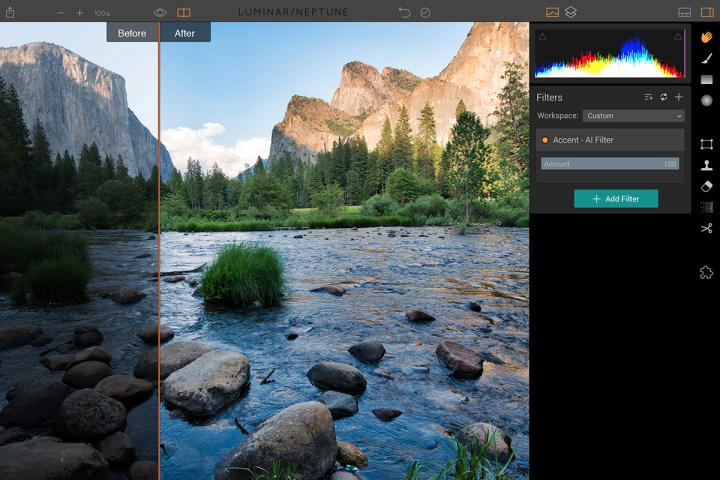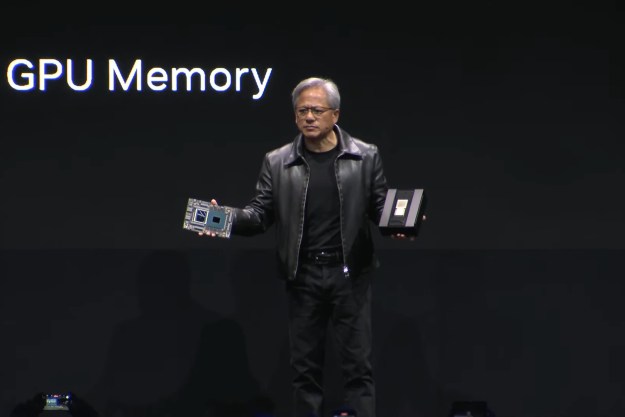
This new Accent AI Filter, according to Macphun, “allows anyone to create stunning images with a single slider instead of using dozens of adjustments and controls.” In other words, unlike a traditional photo editor with various adjustment sliders and controls for things like exposure, highlights, shadows, contrast, and vibrance, the Accent AI Filter condenses that all down into a single slider, which the user can use to modify the image to taste.
This works by the AI analyzing the image based on its structure, highlight and shadow zones, colors, and objects. Then, as the user moves the slider, the AI filter makes changes to the image based on its analysis of the various sections and what it understands to be lacking in those areas of the image. This, in theory, puts the heavy lifting of photo editing onto the software AI, allowing the user to get stunning results after just seconds of moving the slider.

Macphun also notes usability improvements in Luminar Neptune including faster masking and brushing, an improved Vignette filter and better memory management. Additionally, Luminar Neptune will have plug-in integration with Macphun’s other software like Aurora HDR 2017 and Creative Kit. It also must be noted that the Luminar Neptune update is currently only available for Mac, however, the company has said that a public beta for Luminar on PC will launch at some point in July.
Luminar Neptune is now available through the Macphun website, and those interested in the Luminar for PC public beta can get all of the details on that here.
Editors' Recommendations
- YouTube tells creators to start labeling ‘realistic’ AI content
- Tom Hanks warns of AI-generated ad using his likeness
- Spotify using AI to clone and translate podcasters’ voices
- AI drone beats pro drone racers at their own game
- AI-powered commentary is coming to next month’s Wimbledon


